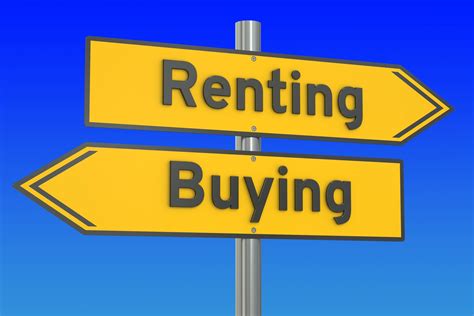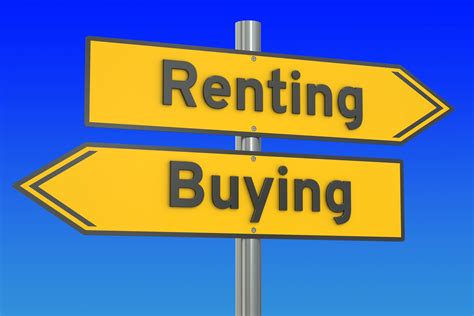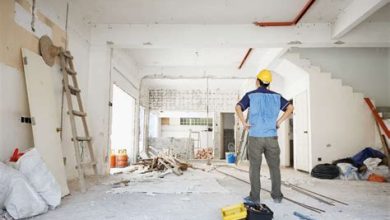Renting vs. Buying Renovation Equipment: Pros and Cons


Hello Readers,
When it comes to renovating your home or workspace, one of the biggest decisions you’ll have to make is whether to rent or buy the equipment you need. Both options have their own set of pros and cons, and it’s important to weigh them carefully before making a choice. In this article, we will explore the advantages and disadvantages of renting vs. buying renovation equipment to help you make an informed decision.
Introduction
Renovations are a big undertaking, and having the right equipment can make all the difference. Renting equipment can be a cost-effective solution, especially if you only need it for a one-off project. On the other hand, buying equipment may give you more flexibility and convenience in the long run. Let’s delve deeper into the pros and cons of both options.
Strengths of Renting Renovation Equipment
1. Cost-effective: Renting renovation equipment can be more budget-friendly, especially if you only need it for a short period of time.
2. Access to the latest technology: Rental companies often have a wide range of equipment options, allowing you to choose the latest and most advanced tools for your project.
3. No maintenance costs: Since you are only renting the equipment, you won’t have to worry about maintenance or repair costs.
4. Flexibility: Renting allows you to access a wide variety of tools without the commitment of ownership.
5. Convenient: Renting equipment can be a hassle-free process, with delivery and pickup services available from rental companies.
6. Space-saving: Renting equipment means you don’t have to worry about storage space for bulky tools and machinery.
7. Try before you buy: Renting gives you the opportunity to test out equipment before deciding if you want to invest in purchasing it.
Weaknesses of Renting Renovation Equipment
1. Limited availability: Depending on the rental company, the equipment you need may not always be readily available.
2. Rental fees can add up: If your project lasts longer than anticipated, rental fees can start to accumulate and may end up costing more than purchasing the equipment.
3. No ownership: Renting means you won’t own the equipment and won’t have the option to use it for future projects.
4. Wear and tear: Since rental equipment is used by multiple customers, it may not always be in the best condition.
5. Scheduling constraints: Renting equipment means you have to adhere to the rental company’s schedule for delivery, pickup, and return.
6. Limited customization options: Rental equipment may not always be tailored to your specific project needs.
7. Risk of damage or loss: If the rented equipment is damaged or lost during your project, you may be responsible for repair or replacement costs.
| Category | Renting Equipment | Buying Equipment |
|---|---|---|
| Cost | Lower upfront costs, but ongoing rental fees | Higher upfront costs, but long-term investment |
| Flexibility | Access to a variety of tools without commitment | Freedom to use equipment at any time |
| Ownership | No ownership, limited to rental period | Full ownership, option to resell or reuse |
| Maintenance | No maintenance costs, but risk of wear and tear | Responsible for upkeep and repair costs |
| Availability | Dependent on rental company stock | Immediate access to equipment |
Frequently Asked Questions:
1. Is renting renovation equipment always cheaper than buying?
Not necessarily. While renting may have lower upfront costs, ongoing rental fees can add up over time.
2. Can I rent specialized renovation equipment?
Yes, rental companies often offer a wide range of specialized tools for different renovation projects.
3. What are the risks of buying renovation equipment?
The main risk of buying equipment is the upfront cost and potential maintenance and repair expenses.
4. How do I know if I should buy or rent renovation equipment?
Consider factors such as the duration of your project, your budget, and the frequency of equipment use to make an informed decision.
5. Can I negotiate rental fees with rental companies?
Some rental companies may be open to negotiation, especially for long-term or bulk rentals.
6. What should I do if the rented equipment malfunctions during my project?
Notify the rental company immediately and follow their instructions for repair or replacement.
7. Is it possible to buy used renovation equipment?
Yes, you can often find used equipment for sale from rental companies or online marketplaces.
Conclusion
After weighing the pros and cons of renting vs. buying renovation equipment, it ultimately comes down to your specific needs and preferences. Consider factors such as cost, convenience, and long-term use to make the best decision for your renovation project. Whether you choose to rent or buy, remember to prioritize safety and efficiency in all your renovation endeavors.
Thank you for reading our in-depth comparison of renting vs. buying renovation equipment. We hope this article has provided valuable insights to help you make the right choice for your next renovation project. Good luck!
Disclaimer: The information provided in this article is for informational purposes only. Always consult with professionals before making decisions related to renovation equipment.
